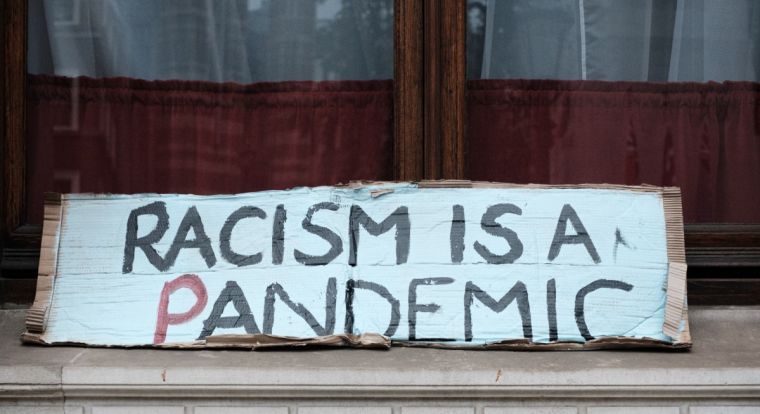Church of England facing 'existential crisis' unless it acts on racism

The time for lament is over and the time for action has come, the Church of England's Anti-Racism Taskforce has said.
The taskforce said that on the issue of racism, the Church was at "a Kairos moment where the wind of the Spirit is leading us as a body to permanent change".
The Archbishops of Canterbury and York created the taskforce last autumn to recommend changes across the Church to ensure greater racial equality.
The creation of the taskforce followed months of protest over the death of George Floyd in the US and came at a time when the Church of England was reckoning with its own legacy of racial injustice.
Months earlier, at the General Synod in February 2020, the Archbishop of Canterbury apologised to the Windrush Generation for the way in which they had been shunned by many white Anglican churches after their arrival in Britain.
In an update on its work, the taskforce said the Church of England had been too slow to bring about change and that too many actions approved and adopted by the Church "had not been acted upon or followed through".
"Protest and demonstrations have been accompanied by public signs of lament and debate about the continuing impact of racism in wider society, including the church," it said.
"For many of us this renewed focus on racial justice has been both a burden and an opportunity. A burden in the realisation of how slow the pace of change has been within the Church of England and a reminder of the experiences we have – and continue to have – of being made to feel different because of skin colour and the experiencing disadvantage through racial stereotyping and cultural misassumption.
"An opportunity because of the wider recognition that the time for lament at such treatment is over and that the time for action has now come.
"There has been a recognition in both society and the church that whilst there have been reports, reviews and recommendations on the continuing stain of racism, this has led to little impact in terms of action."
Elsewhere, the taskforce said that the onus of its work was "not a battle in a culture war but rather a call to arms against the evil and pernicious sin of racism".
"Where racism is found, it must be challenged," it said.
"Whether masked in our behaviours, whispered in our pews, institutionalised in our systems or paraded on our streets, the Church as the body of Christ is called to oppose those actions which cause others to be treated as less than fully human and to dismantle those practices which prevent the full flourishing of all of God's people."
It has outlined five priority areas for action: participation and appointments; education; training and mentoring; young people; governance and structures.
The taskforce said the timetable for implementation of the recommendations would recognise "the urgency of the task and that the time for talking and lament has now given way for a time for action".
"As a taskforce we are united in our view that any failure by the Church to act both intentionally and urgently will lead to an existential crisis brought about by over 30 years of well-intentioned talk accompanied by decades of inaction," it said.
Detailed recommendations will be made in a final report to be published on 22 April, Stephen Lawrence Day.
"The publication of the report will act as a transparent call upon the whole church and to be owned by all of us with the hope that racial justice will become a mainstream part of our lived discipleship as a whole church rather than a concern for a few," the taskforce said.
"Our final report will be published on 22nd April 2021 – Stephen Lawrence Day – in recognition of the continuing impact of institutional racism both within society and the church, combined with the hope that we have reached a Kairos moment where the wind of the Spirit is leading us as a body to permanent change.
"Our hope and prayer is for the healing and reconciling of power of Christ to be the spur for our common commitment to racial justice in our church and our land."











